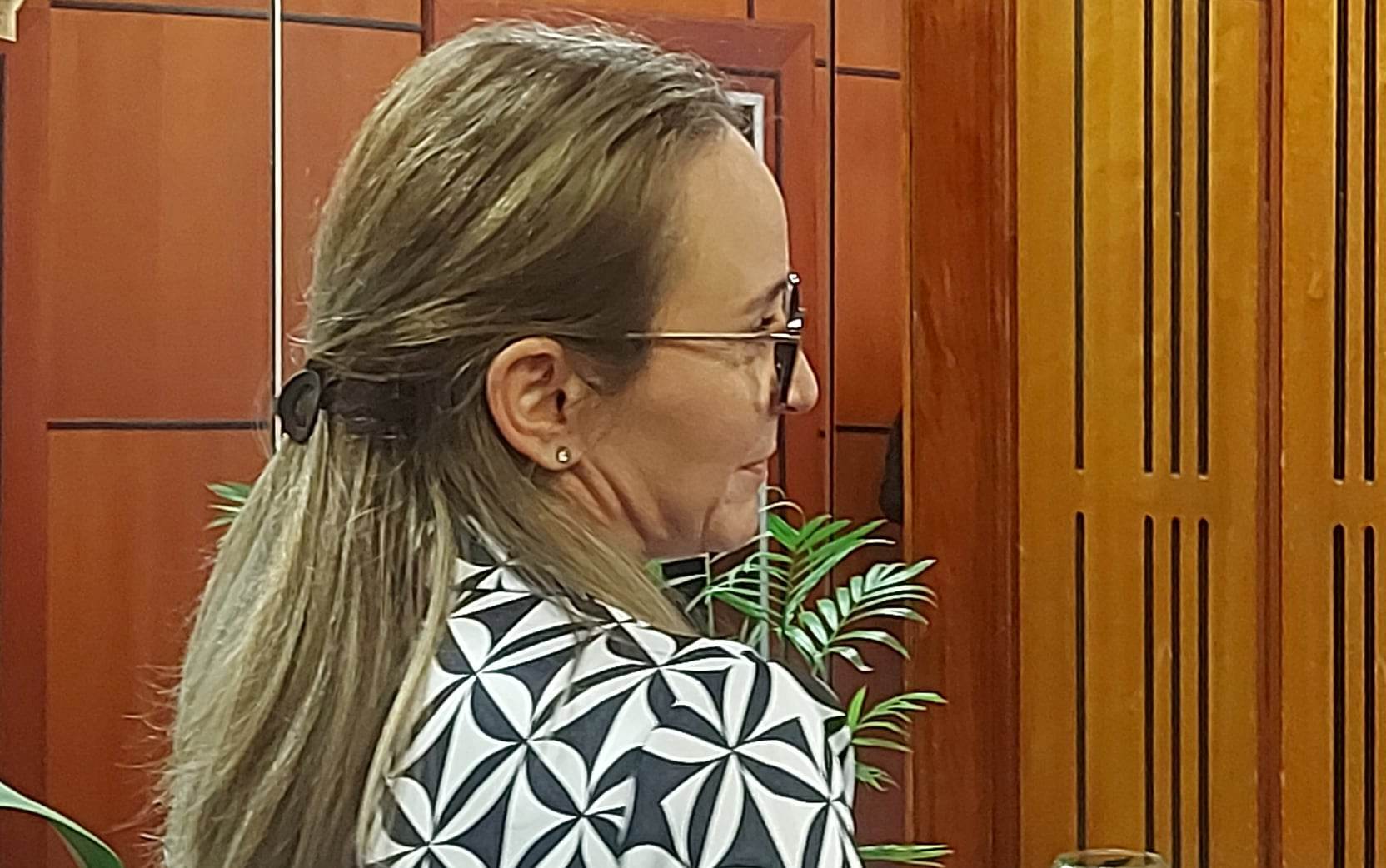
In 2017, Michaela was 40 years old, she had a one-and-a-half-year-old daughter, when she went for a routine check-up with a dermatologist. She wasn’t in any pain, but the mole on her back, which she had had for years, had changed shape and color during her pregnancy. When the dermatologist first said the word “melanoma,” Michaela didn’t even know what it meant. After two months and 7,000 euros spent out of his own pocket for the investigation, he later learned that he only had 2-3 months to live. The shock was all the greater because he had never felt pain or other obvious signs of illness.
He found out he only had 2-3 months to live after the €7,000 investigation, which he paid out of his own pocket: “The panic was brutal then”
Realizing this, Michaela decided, in consultation with her dermatologist, to have further tests, especially imaging, from brain MRI to PET-CT.
“Then the panic was brutal,” Mihaela recalls now.
At the same time, I began to document myself and read a lot.
Michaela first consulted a dermatologist in May 2017. In July, after undergoing imaging studies and paying about 7,000 euros for tests, she learned for sure that she was suffering from stage 3 malignant melanoma.
The news was all the more shocking because she had never experienced pain or other obvious signs of the disease, other than the shape-changing birthmark. He was told that he went to the doctor too late and that he had 2-3 months to live.

Michael told his story at a workshop on clinical research organized by the National Agency for Medicines and Medical Devices. She does not want to appear in press materials with her face, but only her back or in profile
“The shock was very strong when I saw my name and saw that cancer was written next to it and that the side effects of immunotherapy can be fatal”
When all seemed lost, Michaela learned from a patient association that there was another chance: a clinical trial of immunotherapy for melanoma patients.
“I said that instead of going through chemotherapy and seeing me melt away, I’d rather sign up (for a clinical trial – ed.) no matter what.”
“The shock was very strong, to see my name and to see that cancer is written there next to it and that the side effects of immunotherapy – because this is what we are talking about – can be fatal,” Michaela admits now.
But Michael was lucky. During her treatment in the clinical trial, she was constantly monitored by a team of doctors who constantly answered her every question, even if she called them late at night. “They had answers for everything that came up, any rash, any reaction.”
Additionally, skin rashes were the only side effect Michaela experienced during treatment.
The clinical trials, thanks to which Michaela survived, lasted 49 weeks. Mihaela lives in Bucharest, and every two weeks she traveled to Craiova for treatment, on which she placed all her hopes: “It was not difficult. I did injections every two weeks.”
Together with her, another 48 patients were involved in the clinical trial.
“When I turned 41, I gave myself the last dose. Since then, I have been undergoing examinations, monitoring every 3 months, blood tests, imaging, ultrasound of soft tissues.”

Clinical study / Photo: Nonmim | Dreamstime.com
The immunotherapy that saved Michaela was approved today. Michaela became a patient navigator
Today, 6 years later, Michaela still remembers the fears she had during the clinical trial: “I had a lot of fears. Think about what it means for a cancer patient to be examined every 3 months in an environment where you are not allowed to be exposed to radiation or stay in the sun. And you end up doing imaging studies every 3 months to see if there’s a change, if there’s a recurrence of the disease.”
However, Michaela tried to remain optimistic throughout the treatment. He admits that he tried never to think about the fact that he is a cancer patient with an incurable disease.
Michaela’s little girl, who was only 2 and a half years old when her mother was diagnosed, never knew anything about her mother’s illness.
“It was my only chance. This is the best decision I have ever made. I gave myself a chance to live and see how my little daughter grows,” Mihaela says today about the clinical study that gave her a new chance at life.
Michaela’s story is not the only good news. Today, 6 years after Michaela’s diagnosis, the immunotherapy that keeps her alive is approved and now available to Romanian melanoma patients.
After she managed to defeat the disease, Michaela became a patient navigator – today she helps other melanoma patients navigate the health care system.
Clinical trials, the only chance for a patient who has exhausted treatment methods
Clinical trials, which test the effectiveness and safety of a drug for use in humans, are often the only chance for a patient who has exhausted treatment options, explains Dr. Michael Schenker, a primary care medical oncologist, president of the Department of Health’s Cancer Commission and coordinator a clinical study in which Michaela was involved.
When there is no other solution, “it becomes an ethical choice to offer the patient,” explains Dr. Michael Schenker: “Probably 90% of patients who would be in that situation would accept,” says Michael Schenker.

Dr. Michael Schenker, oncologist and president of the oncology commission of the Ministry of Health / Photo: Agerpres
In any case, there are fewer clinical trials in Romania than in other countries, and many Romanian patients in such a situation seek clinical trials themselves, admits Michael Schenker.
According to his estimates, about 1,000 Romanian cancer patients are currently participating in clinical trials.
How many clinical trials are ongoing in Romania?
In Romania, there are currently 278 clinical trials authorized by the National Agency for Medicines and Medical Devices.
Most of them are for the treatment of cancer – multiple myeloma, lung cancer, breast cancer, prostate cancer, cervical cancer, lymphoma, ovarian cancer and several types of carcinoma.
In addition to oncological diseases, clinical trials of other diseases are conducted in our country: diabetes, epilepsy, multiple sclerosis, Crohn’s disease, myocardial infarction, cardiovascular diseases, bronchial asthma, hepatitis B, pulmonary hypertension, schizophrenia, lupus, chronic obstructive pulmonary disease. diseases (COPD), diseases of the immune system and growth hormone deficiency.
The complete list of clinical trials authorized in Romania and the list of hospitals where they are conducted are available on the website of the National Agency for Medicines and Medical Devices.
Source: Hot News
Ashley Bailey is a talented author and journalist known for her writing on trending topics. Currently working at 247 news reel, she brings readers fresh perspectives on current issues. With her well-researched and thought-provoking articles, she captures the zeitgeist and stays ahead of the latest trends. Ashley’s writing is a must-read for anyone interested in staying up-to-date with the latest developments.